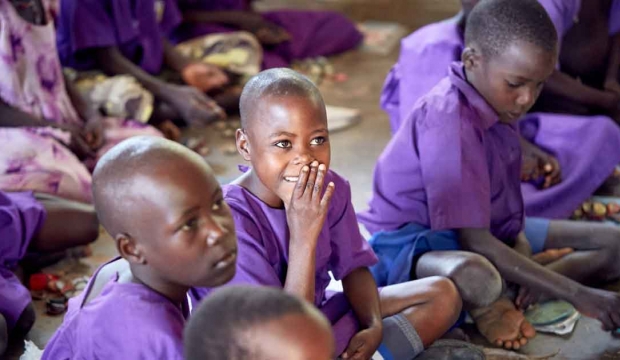
A child's first years at school are the most important. They can lay the foundations for future education, and even adult life.
However, children across rural Africa are starting school unprepared and in unsuitable environments.
Teachers often lack the tools and training to engage younger learners, while parents are unable to prioritise education at home.
In Uganda, just 33% of children can read a basic sentence by Year 3.
This lack of support means that children can struggle to learn important basics, including the vital literacy and numeracy skills that underpin all other learning. This leads to undeveloped communication abilities and eventually higher rates of children dropping out of school. Investment in the first years of primary education is proven to give the highest return on investment.
In 2015 our Early Years Education Quality in Uganda Advancing Learning Component (EQUAL) Project worked with children, parents and teachers across 15 schools in the Masindi, Buliisa and Kiryandongo districts of Western Uganda to ensure children in their first three years of school have the best possible foundation to continue their education and live more fulfilled lives.
The project aimed to provide the academic and social support to both boys and girls. We achieved this by training teachers to learn engaging new skills and provide accessible, quality teaching in the classroom. This included using "Buddy club" and peer learning approaches to empower children to mentor each other in school, while also engaging with and training parents to champion their children’s education by supporting learning at home.
Our EQUAL Project had promising results after just one year. Already the number of Year 3 children able to pass a basic literacy and numeracy test has increased by 8% (from just 2% of boys and 3% of girls), while the number of children able to pass a behavioural and social skills assessment has increased from 38% to 55% for boys, and 37% to 59% for girls.
Our "Buddy clubs", which pair vulnerable young learners with older children as part of the same project, have also had an important impact with 76% of girls reporting a good level of self esteem compared with 59% at baseline.In summer 2015 we extended our early learning work to further schools in Western Uganda.
In the first six months we trained 30 teachers at 10 schools in improved early year’s methods, and supplied supporting toolkits enabling teachers to be more effective in the classroom.
We also identified and trained 26 community members to form supportive "parents' clubs" in their school communities.
As part of the project, over 950 parents attended Build Africa led school open days to promote stronger community engagement in education.
To date approximately 2,000 parents have enrolled in parents clubs to learn how to support their children further.
